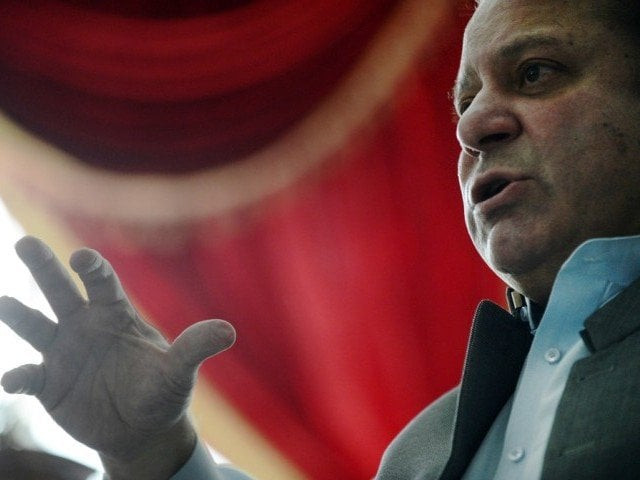Balochistan crisis: Lessons for PML-N
Zehri’s resignation has ostensibly calmed down things, but the crisis is far from subsiding

Zehri’s resignation has ostensibly calmed down things, but the crisis is far from subsiding. PHOTO: FILE
Zehri failed to muster the required support due to a revolt from within his party and resigned, instead, to avert a political crisis. Although Zehri’s resignation has ostensibly calmed down things, the crisis is far from subsiding. If the theory of a plot against Senate elections is to be believed, then the threat persists because the candidates who are likely to replace Zehri — Saleh Bhootani, Jan Jamali, Changaiz Marri and Sarfaraz Bugti — are all considered to be close to the establishment and less likely to defy pressure for dissolving the assembly.
Political commentary on the issue so far has focused primarily on the role of non-democratic forces in instigating the crisis and rightly so. This analysis, however, provides only a partial explanation of the turmoil. Yes, non-democratic hands may have been at play but why did the PML-N Balochistan chapter proved to be so fragile and vulnerable? CM Zehri needed only eight to nine votes to survive and couldn’t secure them out of a pool of 21 members.
Given the political climate of the past few months, the PML-N should have known that this was coming. What should be surprising for the PML-N and political pundits alike are the manner and ease with which the PML-N Balochistan chapter fell like a house of cards.
A deeper and more systematic analysis of the Balochistan crisis should also ask the question: why a big statewide party like the PML-N proved to be more susceptible to outside manipulation compared to the smaller ethno-regional parties like the PkMAP and the NP? Statewide parties in Balochistan have a history of being prone to manoeuverings and machinations. Understanding the reasons of this vulnerability is critical to making the political system and political parties resilient to such intrigues in the future.
In order to answer the aforementioned question, it is imperative to first take stock of the organisational structure and support base of these parties in Balochistan. Three types of political parties currently populate the political stage in the restive province: statewide parties, religious parties and ethno-nationalist parties.
The case of statewide parties in Balochistan is a rather interesting one. These parties, namely the PML-N, the PPP, the PML-Q, have ruled the province on multiple occasions. Between 1970 and 2017, Balochistan has remained under dejure civilian rule for only 23 years. Of these 23 years, statewide parties have ruled for approximately 17 years (72%) whereas ethno-regional parties have ruled for six years (28%) only.
Despite having ruled the province multiple times, these parties have the poorest organisational strength and support base. Their membership is weak and grassroots presence almost non-existent. Instead of representing the aggregate interest of the public, these parties are widely believed to be advancing the interests of a part of the state apparatus. No wonder, they have failed in cultivating ideational support among common masses and establishing a core group of supporters. They have almost always relied on intermediaries in the form of the evergreen tribal chieftains who tend to have a personalised and narrow voter base. Most of these tribal chieftains are political turncoats who change political loyalties every five to 10 years. For instance, nearly 90% of the current PML-N MPAs in the provincial assembly, including CM Zehri and other cabinet members, have changed political loyalties at least once in the past. Indeed, the current PML-N Balochistan chapter can hardly be called a political party in the strict sense of the word. It is a bunch of powerful individuals who have joined hands to exercise power for five years and then are likely to switch sides as the power balance shifts.
In contrast, ethno-nationalist and religious parties are better organised and more deeply rooted with a better organisational structure. Let’s take the case of ethno-nationalist parties like the NP, the BNP-M and the PkMAP. The core support base of these parties comprises professional middle class, including university students, doctors and schoolteachers. This core group performs the vital functions of grassroots organisation, recruitment and mobilisation. While the educated middle class dominates the rank and file, tribal chiefs and old landed elites have historically had an over-proportionate presence at the top leadership positions. This especially holds true for ethnic parties in the Baloch region, where Sardari system is more deeply entrenched compared to other regions of the province.
Ethno-nationalist parties have not only survived the state repression but also preserved organisational structure and grassroots connectivity in the face of political exclusion and distance from power. In contrast, statewide parties like the PML-N have easily proven to be susceptible to intrigues, thanks largely to weak organisational strength and over-reliance on political turncoats and powerful individuals. Moving forward, statewide parties need to revamp their organisational structure and make efforts to cultivate genuine social support if they want to succeed as agents of democratisation, accountability and integration.
Published in The Express Tribune, January 11th, 2018.
Like Opinion & Editorial on Facebook, follow @ETOpEd on Twitter to receive all updates on all our daily pieces.














COMMENTS
Comments are moderated and generally will be posted if they are on-topic and not abusive.
For more information, please see our Comments FAQ